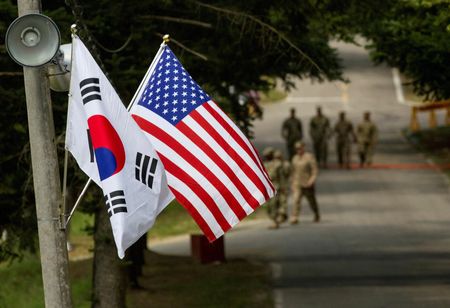SEOUL/WASHINGTON (Reuters) – The United States, South Korea and Japan participated in a ballistic missile defense exercise off Hawaii’s coast last week, the Pentagon said on Tuesday, reviving combined drills with an eye on North Korea as well as China.
It was the first time the three countries have held such drills since 2017, after relations between Seoul and Tokyo hit their lowest in years in 2019 amid renewed historical disputes dating to Japan’s 1910-1945 occupation of the Korean peninsula.
South Korean President Yoon Suk-yeol, a conservative who took office in May, has vowed to improve relations with Japan and deepen the U.S. alliance to better deter North Korea, including by expanding or resuming joint drills.
The missile warning and ballistic missile search and tracking exercise took place Aug. 8-14 during the multinational Pacific Dragon drills, and demonstrated the three countries’ commitment to respond to challenges posed by North Korea, protect shared security and bolster the rules-based international order, the Pentagon said in a statement.
The participants shared tactical data link information in accordance with a trilateral information sharing agreement, the statement said.
U.S.-led joint missile defence measures have been a sore point with China, which retaliated economically against South Korea’s 2016 decision to host a U.S. military Terminal High Altitude Area Defense (THAAD) battery.
Beijing says the THAAD radar can penetrate its territory and has called on Yoon to honour assurances made by his predecessor to not to increase THAAD deployments, participate in a U.S.-led global missile shield or create a trilateral military alliance involving Japan.
Yoon has said those do not represent formal agreements and that Seoul is not bound by them.
South Korea’s ministry of defense also confirmed on Tuesday that its troops would resume long-suspended live field training during their joint military drills with the United States to be held from Aug. 22 to Sept. 1.
The two sides have scaled back combined military drills in recent years due to COVID-19 and efforts to lower tensions with the North, which has accused the exercises of being a rehearsal for invasion.
(Reporting by Josh Smith in Seoul and Idrees Ali in Washington; Editing by Sandra Maler and Sam Holmes)





